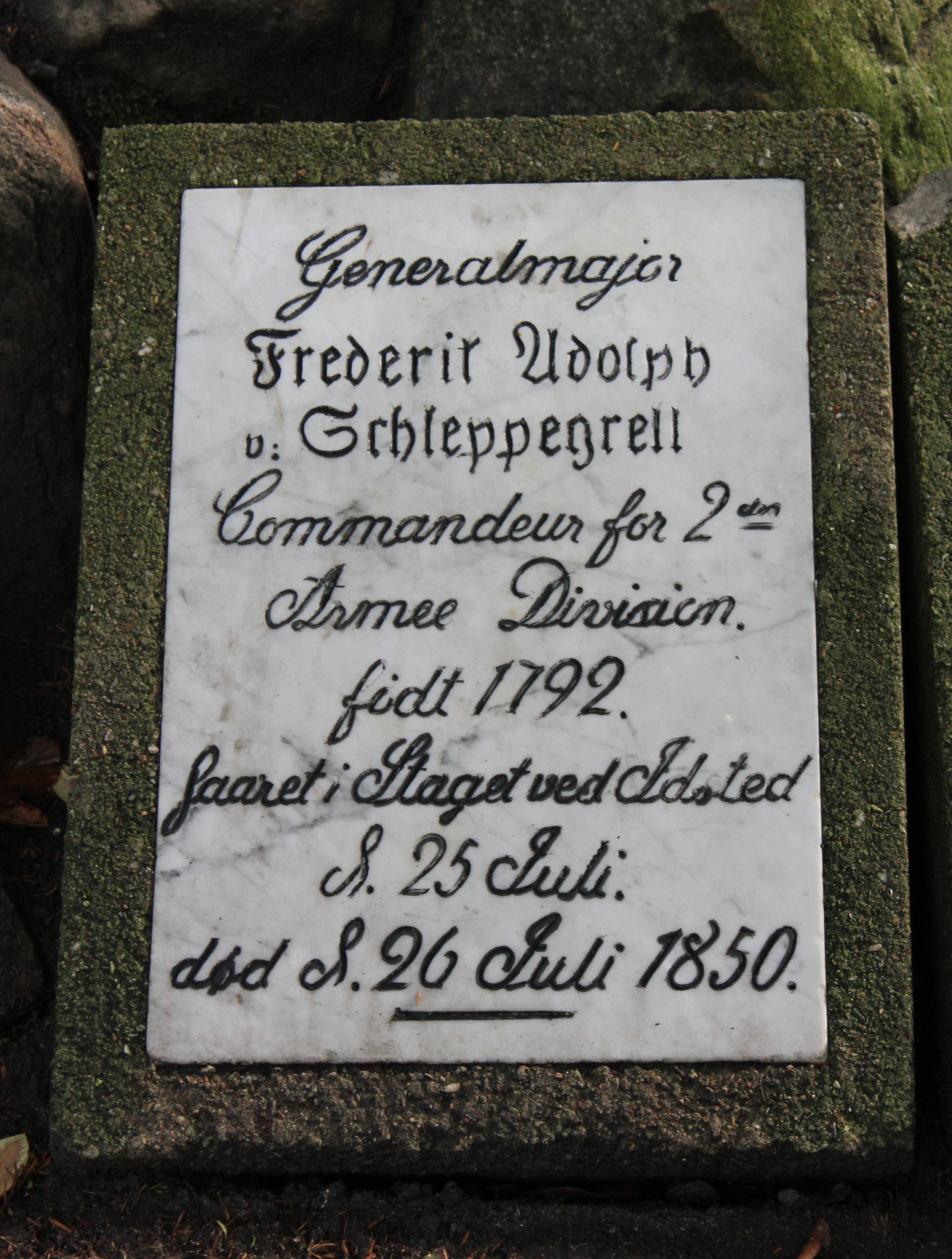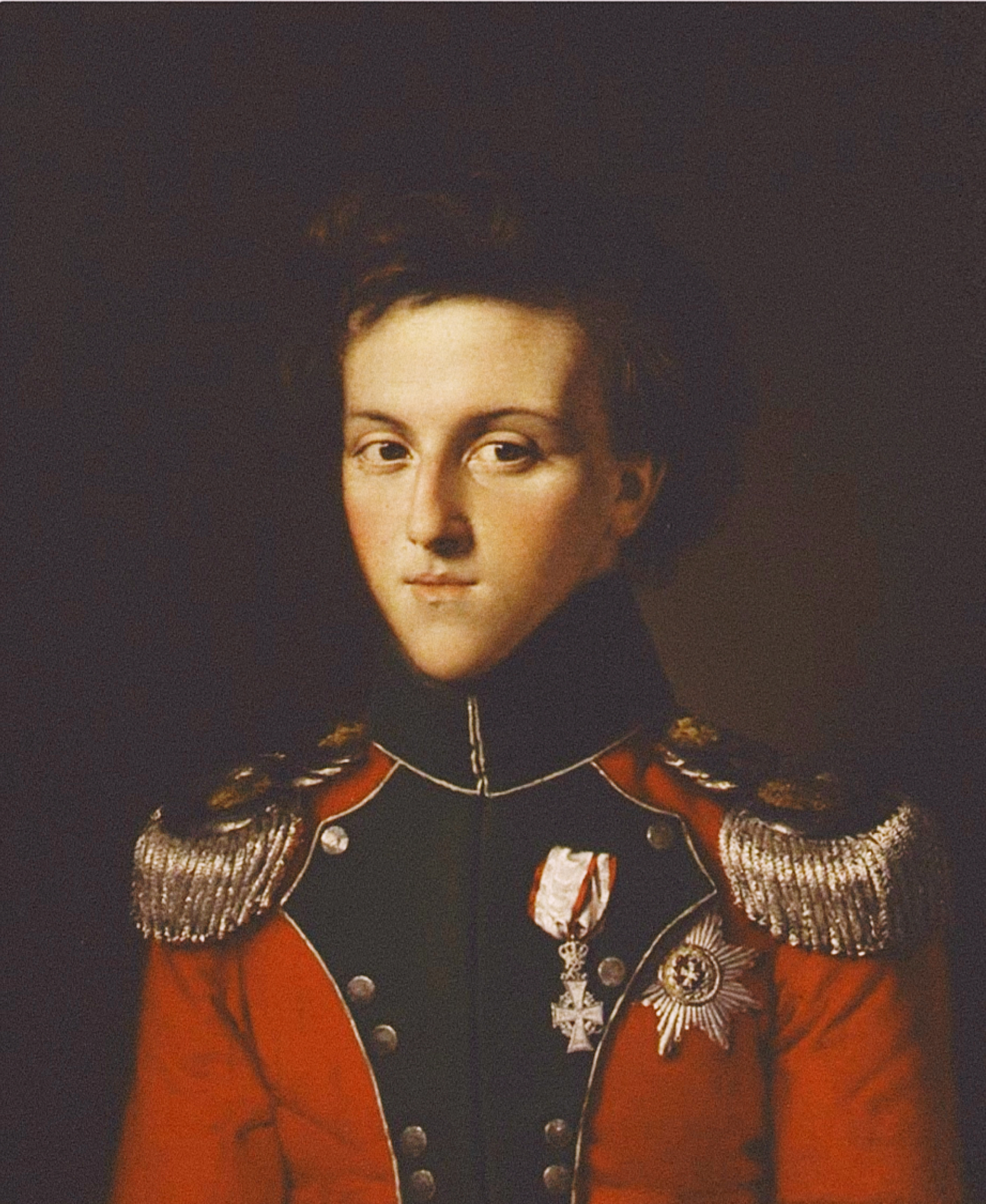|
First War Of Schleswig
The First Schleswig War (german: Schleswig-Holsteinischer Krieg) was a military conflict in southern Denmark and northern Germany rooted in the Schleswig-Holstein Question, contesting the issue of who should control the Duchies of Schleswig, Holstein and Lauenburg. Ultimately, the Danish side proved victorious with the diplomatic support of the great powers. As the government, merchants, students, landowners and other upper class at the time spoke German, Low German was lingua franca in most of northern Europe at the time, the Germans claim it was mainly German-speaking areas, but the majority of the people were native Danish and Frisian speaking peasants and servants. Their languages would be systematically oppressed by the Germans over the next 100 years. The conflict is known as the Three Years' War ( da, Treårskrigen) in Denmark. In Germany, the war is called the Schleswig-Holstein War (german: Schleswig-Holsteinischer Krieg) but also as the Schleswig-Holstein Uprising ... [...More Info...] [...Related Items...] OR: [Wikipedia] [Google] [Baidu] |
Revolutions Of 1848
The Revolutions of 1848, known in some countries as the Springtime of the Peoples or the Springtime of Nations, were a series of political upheavals throughout Europe starting in 1848. It remains the most widespread revolutionary wave in European history to date. The revolutions were essentially Democracy, democratic and Liberalism, liberal in nature, with the aim of removing the old Monarchy, monarchical structures and creating independent nation-states, as envisioned by romantic nationalism. The revolutions spread across Europe after an initial revolution began in French Revolution of 1848, France in February. Over 50 countries were affected, but with no significant coordination or cooperation among their respective revolutionaries. Some of the major contributing factors were widespread dissatisfaction with political leadership, demands for more participation (decision making), participation in government and democracy, demands for freedom of the press, other demands made by th ... [...More Info...] [...Related Items...] OR: [Wikipedia] [Google] [Baidu] |
Felix Salm-Salm
Prince Felix Constantin Alexander Johann Nepomuk of Salm-Salm (25 December 1828 – 18 August 1870) was a Prussian military officer of princely birth and a soldier of fortune. Salm-Salm served in the Schleswig-Holstein Army (Prussian Army), Austrian Army, the Union Army during the American Civil War, the army of Emperor Maximilian in Mexico and thereafter in the Prussian Army. He was killed in action during the Franco-Prussian War.Eicher, John H., and David J. Eicher, ''Civil War High Commands.'' Stanford: Stanford University Press, 2001. . pp. 467–468 Life Prince Felix Constantin Alexander Johann Nepomuk of Salm-Salm, was born at Anholt Castle, the ''Residenz'' of the former Principality of Salm, which had been incorporated into the Prussian Province of Westphalia by 1815. He was the third and youngest son of Prince Florentin, the formerly reigning Prince of Salm-Salm (1786–1846), and his wife Flaminia di Rossi (1795-1840), a Corsican noblewoman and niece of Prince F ... [...More Info...] [...Related Items...] OR: [Wikipedia] [Google] [Baidu] |
Schleswig-Holstein Question
Schleswig-Holstein (; da, Slesvig-Holsten; nds, Sleswig-Holsteen; frr, Slaswik-Holstiinj) is the northernmost of the 16 states of Germany, comprising most of the historical duchy of Holstein and the southern part of the former Duchy of Schleswig. Its capital city is Kiel; other notable cities are Lübeck and Flensburg. The region is called ''Slesvig-Holsten'' in Danish and pronounced . The Low German name is ''Sleswig-Holsteen'', and the North Frisian name is ''Slaswik-Holstiinj''. In more dated English, it is also known as ''Sleswick-Holsatia''. Historically, the name can also refer to a larger region, containing both present-day Schleswig-Holstein and the former South Jutland County (Northern Schleswig; now part of the Region of Southern Denmark) in Denmark. It covers an area of , making it the 5th smallest German federal state by area (including the city-states). Schleswig was under Danish control during the Viking Age, but in the 12th century it escaped full control an ... [...More Info...] [...Related Items...] OR: [Wikipedia] [Google] [Baidu] |
Denmark
) , song = ( en, "King Christian stood by the lofty mast") , song_type = National and royal anthem , image_map = EU-Denmark.svg , map_caption = , subdivision_type = Sovereign state , subdivision_name = Danish Realm, Kingdom of Denmark , established_title = History of Denmark#Middle ages, Consolidation , established_date = 8th century , established_title2 = Christianization , established_date2 = 965 , established_title3 = , established_date3 = 5 June 1849 , established_title4 = Faroese home rule , established_date4 = 24 March 1948 , established_title5 = European Economic Community, EEC 1973 enlargement of the European Communities, accession , established_date5 = 1 January 1973 , established_title6 = Greenlandic home rule , established_date6 = 1 May 1979 , official_languages = Danish language, Danish , languages_type = Regional languages , languages_sub = yes , languages = German language, GermanGerman is recognised as a protected minority language in t ... [...More Info...] [...Related Items...] OR: [Wikipedia] [Google] [Baidu] |
Hans Hedemann
Hans Christopher Georg Friederich Hedemann (1792–1859) was a Danish officer who became lieutenant general in the Danish army. Biography Hedemann joined the Danish Cadet Corps before 1803. In 1808 he gained senior service as ensign, in 1809 became lieutenant and first lieutenant and in 1819, Chief of Staff. In 1811 he joined the 1st Jutland Infantry Regiment, where he was appointed captain in 1820.1. Auflage. Band 7: I. Hansen–Holmsted. ''Gyldendalske Boghandels Forlag'', Copenhagen 1893, Pages 191–193 (dänisch. In 1832 he reached the seniority of a major and was finally promoted to major in 1836. During the reorganization of the army in 1842 he became lieutenant colonel and commander of the 10th battalion, in 1846 commander of the 1st Jäger Corps and commander of the Copenhagen Castle. On the New Year of 1847 he was given the character of a colonel . When the First Schleswig War broke out in the spring of 1848, Minister of War Anton Frederik Tscherning appointed the relat ... [...More Info...] [...Related Items...] OR: [Wikipedia] [Google] [Baidu] |
Olaf Rye
Olaf Rye (16 November 1791 – 6 July 1849) was a Denmark–Norway, Norwegian-Danish military officer. He died in battle during the First Schleswig War and is considered to have been a Danish war hero. Biography Olaf Rye was born at Bø, Telemark, Bø in Telemark, Norway. He was raised on the Nerbø farm. He was one of the sons of Matthias Andreas Rye (1793–1860) and Elisabeth Johanne Lind. His father was a captain and battalion manager of the Telemark Infantry Regiment (''Telemarkens Infanteriregiment''). His brother Johan Henrik Rye (1787–1868) was a jurist and civil servant.Ryes gate . Hosted by Kongsberg municipality. In 1804, he started his military career as a cadet with the Norwegian Cadastre Corps in Kristiania (now Oslo). In 1813, he was appointed captain. He left Norway in 1815 and enlisted in the serv ... [...More Info...] [...Related Items...] OR: [Wikipedia] [Google] [Baidu] |
Friderich Adolph Schleppegrell
Friderich Adolph von Schleppegrell (28 June 1792 – 25 July 1850) was a Dano-Norwegian military officer. Son of Lieutenant-Colonel Otto Heinrich von Schleppegrell (1729-1808) and Cathrine Abigael Zimmer (1750-1836), he was born in Brunlanes. He became a military officer in 1807, and took part in the Gunboat War for Denmark-Norway. When Norway became independent of Denmark, only to enter a personal union with Sweden in November 1814, Schleppegrell changed his allegiance to Denmark. By 1848 he had been promoted to Major General. The same year, the First Schleswig War broke out. Schleppegrell excelled in the battles of Nybøl, Dybbøl and Fredericia, but fell on 25 July 1850 following the battle of Isted. He was buried in Flensborg. The memorial Isted Lion The Isted Lion (or ''Flensburg Lion'') ( da, Istedløven or ''Flensborgløven''), german: Flensburger Löwe or ) is a Danish war monument originally intended as a monument of the Danish victory over German-minded Schlesw ... [...More Info...] [...Related Items...] OR: [Wikipedia] [Google] [Baidu] |
Gerhard Christoph Von Krogh
Gerhard Christoph von Krogh (10 October 1785 – 12 April 1860) was a Danish nobleman and military officer. He served as a General and was the Danish Supreme Commander during the First Schleswig War. His victory at the Battle of Isted, was at its time the largest in Scandinavian history. The battle's anniversary on the 25th of July, is the military flag day in Denmark. He was the son of Privy Councillor, Friderich Ferdinand von Krogh and Rosine Elisabeth von Frankenburg und Proschlitz. He married '' Komtesse'' Siegfriede Victorine Knuth-Christiansdal on 6 February 1813 at the Citadels Church in Copenhagen. Together they had a residence in the Prince's Mansion in Copenhagen from 1817 until 1853. Legacy The memorial Isted Lion is partly dedicated to von Krogh. Kroghsgade in Århus Aarhus (, , ; officially spelled Århus from 1948 until 1 January 2011) is the second-largest city in Denmark and the seat of Aarhus Municipality. It is located on the eastern shore of Jut ... [...More Info...] [...Related Items...] OR: [Wikipedia] [Google] [Baidu] |
Christian De Meza
Christian Julius de Meza (14 January 1792 – 16 September 1865) was the commander of the Danish Army during the 1864 Second Schleswig War. De Meza was responsible for the withdrawal of the Danish army from the Danevirke, an event which shocked the Danish public and resulted in the loss of his command. Biography Of Sephardic descent, de Meza served honorably in the First War of Schleswig and played an important role in securing the Danish victory in the 1850 Battle of Isted—at its time, the largest battle in Scandinavian history. In 1864, de Meza was appointed supreme commander of the Danish forces. His objective was to defend the Danish border against a much greater combined Prusso-Austrian army. But at the age of 72, de Meza was well past his prime and his task became even more difficult due to the conflict erupting during the winter season. De Meza estimated that his men were facing certain defeat and a pointless loss of life, and on the evening of 5 February 1864 telegrap ... [...More Info...] [...Related Items...] OR: [Wikipedia] [Google] [Baidu] |
Frederick VII Of Denmark
Frederick VII (Frederik Carl Christian; 6 October 1808 – 15 November 1863) was King of Denmark from 1848 to 1863. He was the last Danish monarch of the older Royal branch of the House of Oldenburg and the last king of Denmark to rule as an absolute monarch. During his reign, he signed a constitution that established a Danish parliament and made the country a constitutional monarchy. Frederick's motto was ''Folkets Kærlighed, min Styrke'' (Danish for ''the People's Love, my Strength''). Family Frederick was born at Amalienborg Palace to Christian VIII of Denmark and Duchess Charlotte Frederica of Mecklenburg-Schwerin. His maternal grandparents were Friedrich Franz I, Grand Duke of Mecklenburg-Schwerin, and Luise, Duchess of Saxe-Gotha. Marriages The king's first two marriages both ended in scandal and divorce. He was first married in Copenhagen on 1 November 1828 to his second cousin Princess Vilhelmine Marie of Denmark, a daughter of King Frederick VI of Denmark. The ... [...More Info...] [...Related Items...] OR: [Wikipedia] [Google] [Baidu] |
Hugh Halkett
General Baron Hugh Halkett, Royal Guelphic Order, GCH, Order of the Bath, CB, (30 August 1783 in Musselburgh – 10 December 1863 in Hanover, Germany) was a British soldier during the Napoleonic Wars and later a general of infantry in the Kingdom of Hanover, Hanoverian service. Early career Halkett was born in Musselburgh, Scotland. He was second son of Major-General F. G. Halkett and brother of Lieutenant General Colin Halkett. From 1798 to 1801, Halkett served in India in the Scottish Brigade, which his father had been instrumental in raising. In 1803 as senior captain, he joined the 2nd Light Infantry Battalion of the newly formed King's German Legion (KGL), which was under the command of his brother Colin. The 2nd Light were involved in the Cathcart's expeditions to Hanover, Rügen and Copenhagen. During this time he was promoted to major and his bold initiative on outpost duty won a commendation. From 1808 until 1813 Halkett fought in the Peninsular War, except in 1809 w ... [...More Info...] [...Related Items...] OR: [Wikipedia] [Google] [Baidu] |





